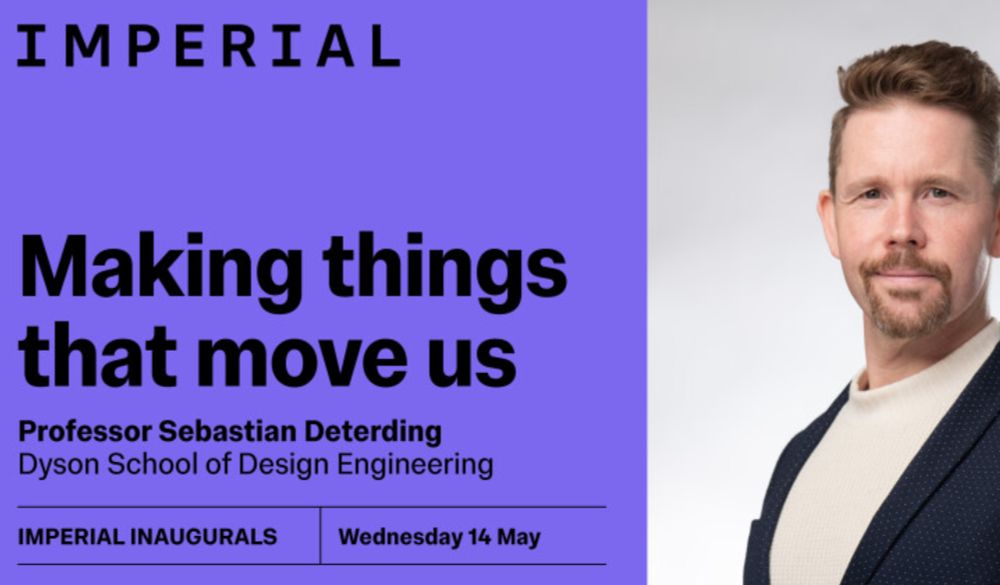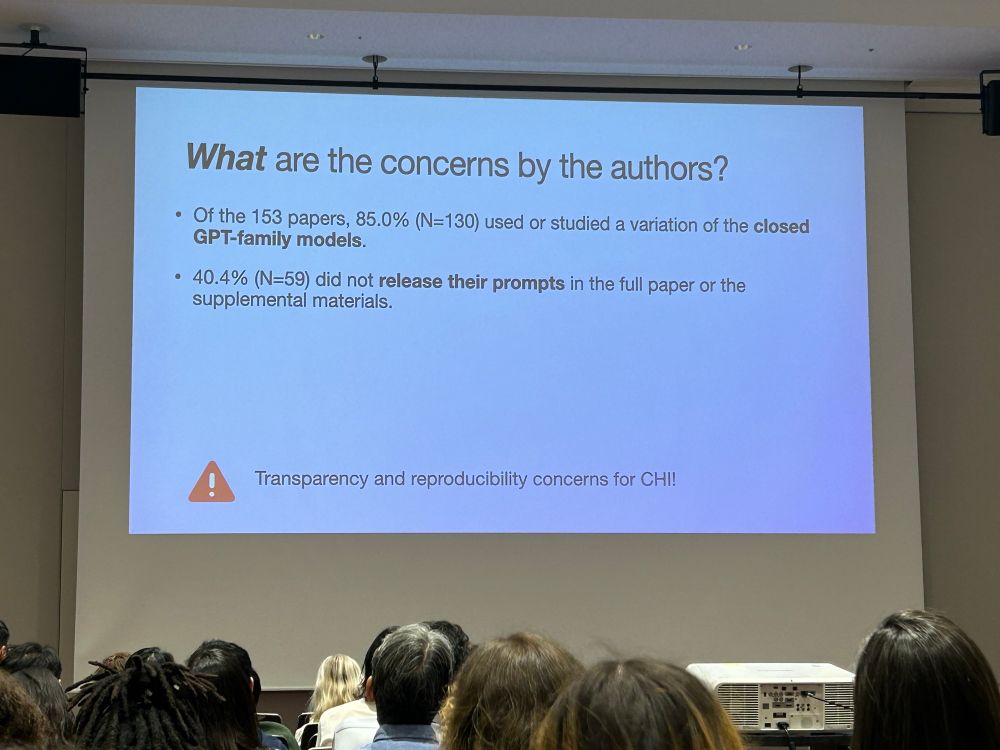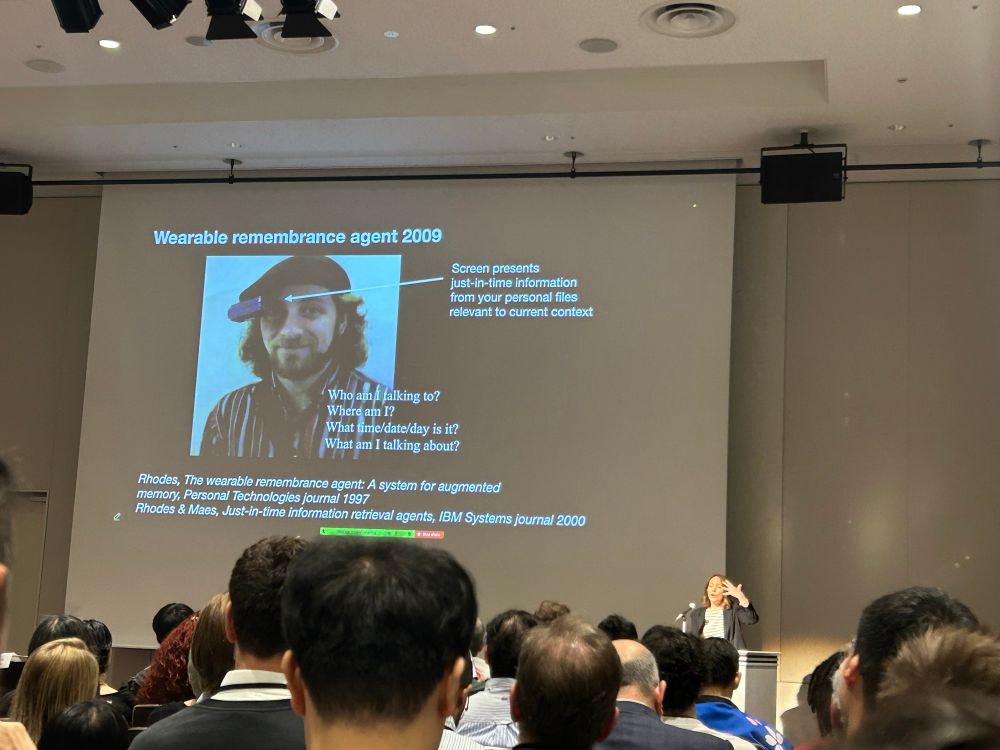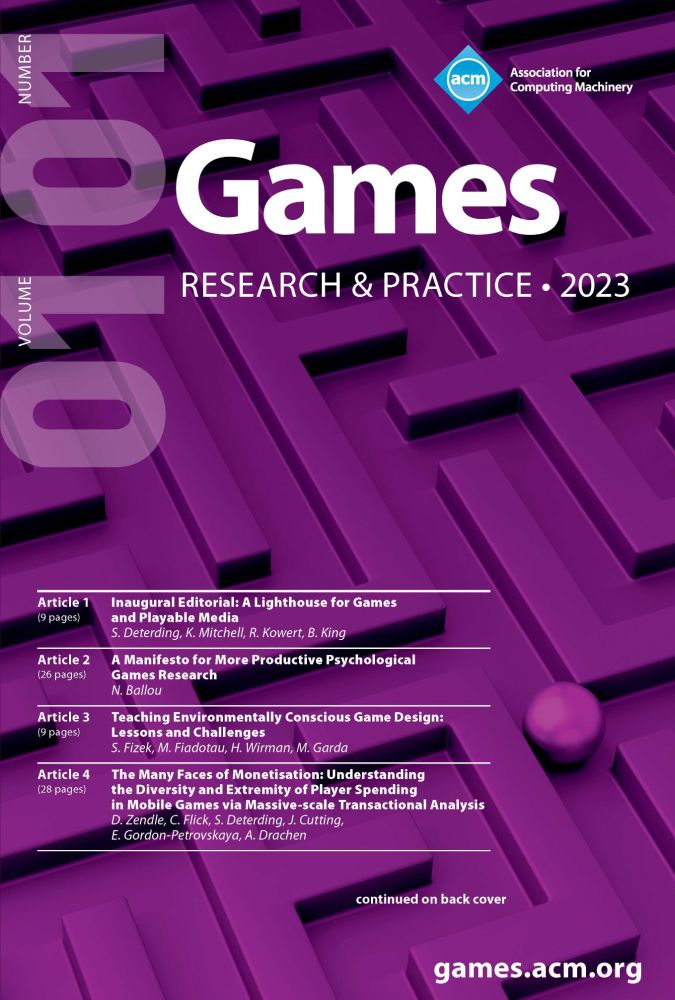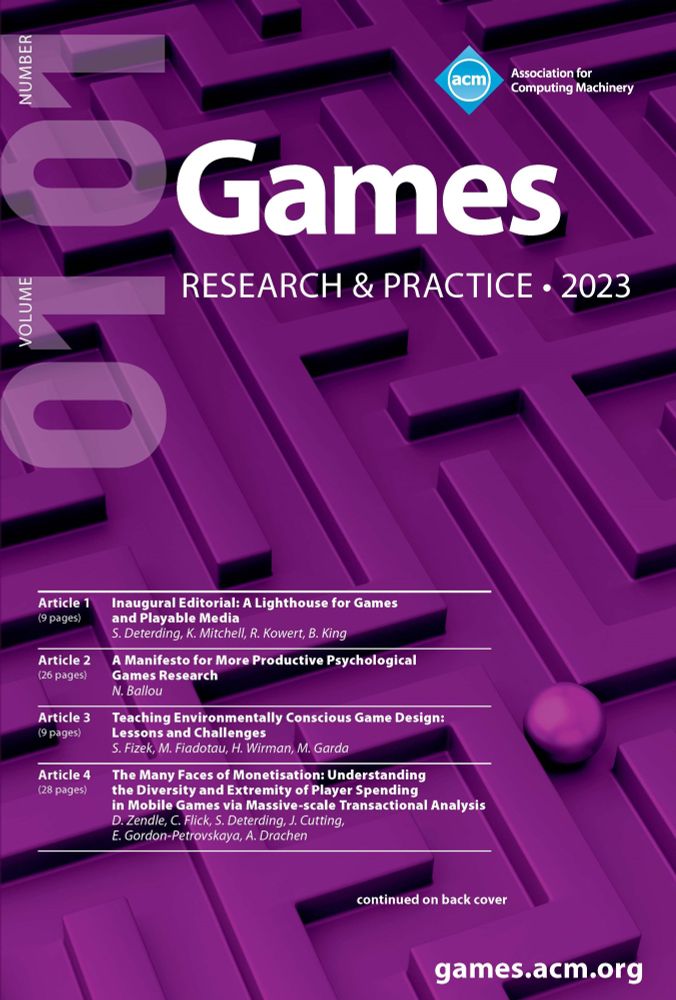Sebastian Deterding
Deliberate designer & empirical philosopher of playful & engaging things. Professor @ Dyson School of Design Engineering, Imperial College. Editor-in-Chief, games.acm.org. @codingconduct@hci.social on Mastodon. https://codingconduct.cc
- Little boost: if you’re interested, my inaugural lecture is happening later today.
- On May 14, 5:30pm BST, I get to give my inaugural lecture as professor at @imperialcollegeldn.bsky.social, in-person & live-streamed. Titled "Making things that move us", it reflects on what games taught me about design, motivation, & life. Do join! www.imperial.ac.uk/events/19128...
- [Not loaded yet]
-
View full threadI didn’t recall whether Redemption featured the original rules.
- I *believe* Cyanide Studio’s 2018 CoC loosely uses some actual CoC BRP mechanics. It does have a “spot hidden” for sure.
- Vampire: The Masquerade Bloodlines.
- On May 14, 5:30pm BST, I get to give my inaugural lecture as professor at @imperialcollegeldn.bsky.social, in-person & live-streamed. Titled "Making things that move us", it reflects on what games taught me about design, motivation, & life. Do join! www.imperial.ac.uk/events/19128...
- A calm, detailed explanation of what the UK Supreme Court ruling on trans people says and doesn’t say and why it matters – one I wanted and needed ever since it came out. Maybe you do, too?
- Everything you need to know about the trans Supreme Court case: What it said, what it didn't, and what happens next iandunt.substack.com/p/everything...
- Channeling @apmcpherson.bsky.social channeling Bill Buxton at a #chi2025 SIG on human-AI collaboration: AI for creatives needs “artist spec” interfaces, and boy are we far away from that.
- Clean, simple, important call-out by Rock Yuren Pang at #chi25 on LLM-ification of HCI research transparency & reproducibility matter! programs.sigchi.org/chi/2025/pro...
- Forgot the alt text: slide says: what are the concerns of the authors? - 85%+ of papers used a closed source GPT model - 40%+ did not disclose their prompts These are transparency and reproducibility concerns for the CHI community
- [Not loaded yet]
-
View full threadI also recommend Café Giant. Vietnamese post-communist bombast pop, sweet egg coffee, and good Banh Mi. 😋
- *Cafe Giang. #downwithautocorrect
- [Not loaded yet]
- Nice! Also, notifications work again!
- Which one :)?
- With deep sympathy and no snark or schadenfreude, I just notice how political upheaval shaping research becomes top of agenda at the #chi2025 SIGCHI community panel as it is hitting the US. …
- [Not loaded yet]
- Yeah. And having Argentinian colleagues, my point was and is genuine: let’s reach out to and solidarise with other researchers who have been or are under oppressive regimes!
- #chi2025 SIGCHI community panel: The paper-presentation-hiring tangle is instituted and thus risky to change, hence most ideas floated are rather marginal. This feels self-disempowering. I do think SIGCHI has institutional power to push more radical change. 🙏
- [Not loaded yet]
- Same with travel restrictions due to funding restrictions. The upside is that this becomes an issue that is considered seriously.
- Is this the point where we awake to the experience of Hungarian, Russian, Argentinian, Chinese, etc etc colleagues that have lived and worked under these conditions for many years?
- [Not loaded yet]
- [Not loaded yet]
- +100. I try to ease l myself into that by treating it as ethnography of the field
- At Pattie Maes’ #CHI205 lifetime achievement talk: I feel the delta between what research imagined & prototyped and what is commercially available was so much larger in the 80/90s than today (where research feels like catchup or parallel many times). Am I wrong? If not, why is this?
- Like, is that a sign of a domain maturing and exhausting a possibility space? Changing volume of commercial computing R&D funding and resource today relative to uni resource? Changes in academic culture? Some kind of cognitive capture?
- Was there so little out there in the 90s/80s that you could and had to imagine much more? Do we today have so much precedent of interfaces in our life and so much routinised “what is a CHI contribution” that that drifts us toward evermore incremental work?
- So I don’t know who needs to hear this but they recreated the world of Yakuza: Like a Dragon 1:1 in Yokohama! #soexcited
- [Not loaded yet]
- [Not loaded yet]
- Do you guide them on how to do checkins? With 4-6 min duration, some can easily ramble their time away. Or does that learning just come from repetition - “ah, if I want a question answered, I need to lead with it?”
- It strikes me that one essential function of the state for working markets is to reduce uncertainty and volatility to make investment planning possible (including but not exhausted by uncertainty over property rights). Within its bounds, a statist economy can be a very predictable economy.
- More than that, states can and do buffer “exogenous” shocks. (The question always being, of course, for whom.)
- Heading to #chi2025. Find me at the usual gaming sessions or ping me here if you want to catch up or have an idea for ACM GAMES dl.acm.org/journal/games.
-
View full thread☺️ Author guidelines: dl.acm.org/journal/game... Scope: dl.acm.org/journal/game...
- Happy to dm/chat about ideas! Game design is definitely a focus. We also try to offer more “practice-friendly” formats, we hope :).
- [Not loaded yet]
- Or in other words, don’t flee into history when current class politics is all you need to understand what’s going on 😆.
- Like, what about science in post-ww2 Russia, Spain under Franco, university-state relations during civil wars, …
- We have a political crisis. Quick, someone call a doctor … in history!
- Put differently: I feel with current critiques of the politicisation of science and attacks on its independence, and yet, am aware that they come from within a contingent historical framing. What’s a historically non-naive stance here?
- And I’ve read my Foucault on power/knowledge. I love my theory but am looking here for accounts deeply constrained / informed by detailed historiographic work.
- Important & doubly depressing read in light of current UK gov proposals to fuel AI growth by forcing creators to opt out of training, when all evidence suggests companies don't care and already exact a big public traffic/maintenance tax on open web resources.
- Same with AI putting an unasked de facto tax on strained public energy and water grids, which consumers pay by utilities raising prices for grid buildout. If anything, governments should lead on adding up all known negative externalities of AI and charge that as tax to AI companies.
- Sure, we can worry that companies then go elsewhere. But in this case, they would take negative externalities elsewhere, not 'value generation' IMO. You can inshore R&D, patents, and make sure that local service delivery prices in externalities instead of leaving them as unjustified profit margin.
- LLMs put a trust tax on so many interactions. Doing uni admissions interviews now and find myself suspecting that some candidates put my questions into an LLM and read off responses, presumably to also help with language issues. Do we now need to conduct all interviewing in person or just give up?
- BIG TALK!! Sebastian Deterding @codingconduct.cc from Dyson School, Imperial College London is visiting to talk about his research "Chasing Engaging Ingredients in Design" this Thursday from 2-3pm BST. All welcome, join us online! www.eventbrite.co.uk/e/1202928504...
- [Not loaded yet]
- Thanks so much! Coming from you, that genuinely means a lot.
- [Not loaded yet]
- A-ma-zing!
- [Not loaded yet]
- [Not loaded yet]
- aLAmen to everything. Would love to chat game-inspired data viz. Also, I’m sure you crossed paths, but if not, you’ll like Stephen Anderson’s work! youtu.be/edxaKw3Cg7o?...
- The new comes into the world by culture playing with itself. We are the playgrounds and toy shelves.
- [Not loaded yet]
- [Not loaded yet]
- Amazing piece!
- [Not loaded yet]
- [Not loaded yet]
- So much love for this thread.
- I don't know ... eighth, seventh bolgia?
- Most media consumption, including news & non-fiction, is firstly emotion-driven. Put differently: the relevant distinction is not fiction/non-fiction, but mood management/problem-solving. Even problem-solving often firstly addresses an emotional job (eg help baby sleep so I’m not stressed).
- Supervising the first generation of students programming with AI, this resonates a lot.
- Everything is larp now. There is no outside.
- [Not loaded yet]
- ☺️

